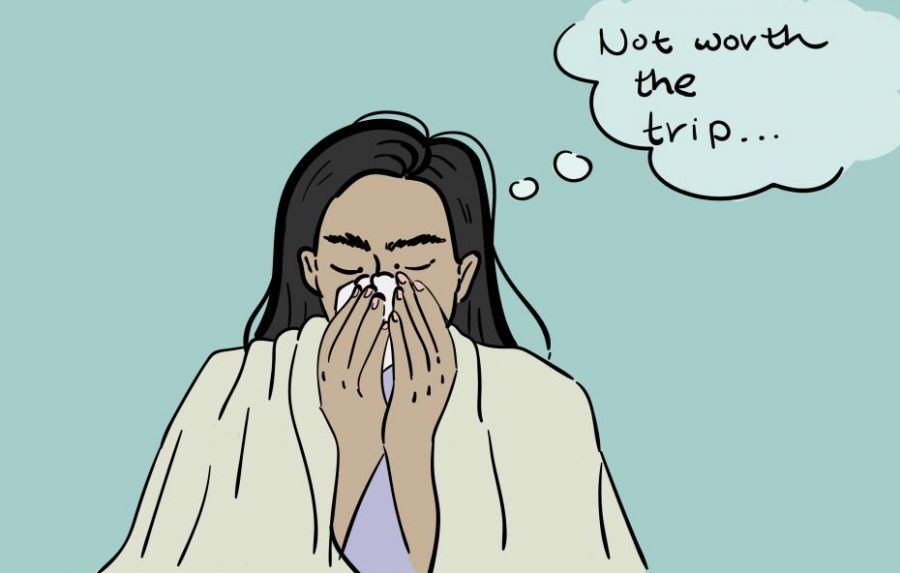Traveling during COVID-19 is unsafe
October 22, 2020
Traveling during COVID-19 comes with many dangers and risks, and although travel companies are attempting to minimize these risks, the safest option is to stay at home and away from other people.
Traveling anywhere ranging from the local grocery store to the other side of the world places travelers at a risk or catching the virus. However, the further travel away from home, the higher the chance travelers will be touching unsanitized objects that have been exposed to COVID-19.
Both the State Department and the Centers for Disease Control and Prevention (CDC) have advisories in place urging against non-essential travel to help minimize COVID-19 spreading.
There’s no strict definition of essential because the concept is subjective. What’s essential is different from person to person; Work or family responsibilities may feel essential to people even during a pandemic.
According to cdc.gov, traveling increases the chance of getting and spreading COVID-19. Staying home is the best way to protect everyone from COVID-19. Travelers may feel well and not have any symptoms, but it is possible to contract and spread COVID-19 to others. The virus may spread to other people including family, friends, and the community for 14 days after someone was exposed to the virus.
If the potential of contracting or spreading coronavirus isn’t enough of a deterrent, there are other potential issues that may persuade travelers to stay at home.
Travelers could become stuck on their way back as countries and states shut borders and airlines cancel flights, and if they do make it home, they are likely to be asked to quarantine for two weeks afterward.
Everyone should operate under the pretense that there is coronavirus disease in their community because it is in the area. This virus doesn’t hide from those who think they are invincible, actually, it infects those who believe they won’t get infected. Even in areas that may not be reporting widespread transmission; the uncertainty of those in the area who is sick or healthy is always an unknown.
Social distancing during a pandemic is one of the best ways to ensure everyone’s safety. Traveling only puts people at risk, and a vacation is not worth getting infected or infecting others. Staying at home for long periods of time may feel like being trapped in a prison, but it is better than being trapped in a hospital bed, fighting against a virus to breathe.




